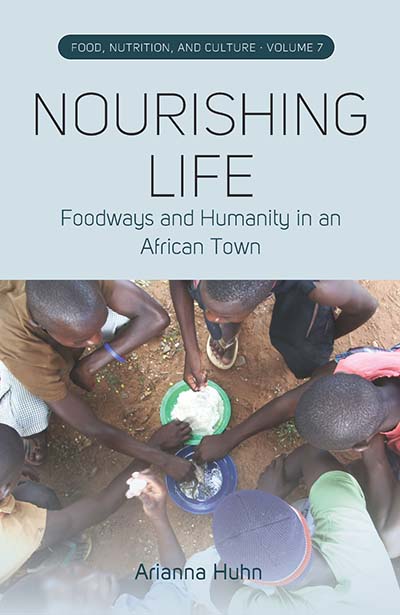“The nuanced discussion of the Nyanja concepts of nourishment, as it relates to the dietary quality of vitamina (vitamins) ascribed to certain foods and as dependent on ‘interdependence, cooperative labor, compassion, and moral intelligence’, is thoughtful and challenging...Recommended.” • Choice
“A monograph of 216 well-written and engaging pages, this work…delves into the direct and straightforward relations between food and life, as well as unearthing a host of fascinating and not always obvious connections between these two broad domains…Huhn’s book is an excellent demonstration of the importance of undertaking long-term fieldwork beyond the metropolitan and urban centres of the world to attain an ethnographically informed understanding of how humanity is produced. It deserves a wide readership.” • Journal of the Royal Anthropological Institute
“…offers important insights into what it is that people in sub-Saharan Africa have over time produced, traded, and consumed… This book is a valuable contribution to the study of commodity chains and will be useful for any persons interested in expanding their knowledge of commodities, capitalism, consumption, African history, environmental studies, and foodways.” • African Studies Review
“Lucid and at times lyrical, this study will be valuable to scholars in food studies, African Studies, and Anthropology more generally. The accessible writing style [makes] it possible to use this manuscript in the classroom at a variety of undergraduate and graduate levels”. • Kathryn M. de Luna, Georgetown University
In this accessible ethnography of a small town in northern Mozambique, everyday cultural knowledge and behaviors about food, cooking, and eating reveal the deeply human pursuit of a nourishing life. This emerges less through the consumption of specific nutrients than it does in the affective experience of alimentation in contexts that support vitality, compassion, and generative relations. Embedded within central themes in the study of Africa south of the Sahara, the volume combines insights from philosophy and food studies to find textured layers of meaning in a seemingly simple cuisine.
Arianna Huhn is an Associate Professor of Anthropology at California State University, San Bernardino and Director of the university's Anthropology Museum. Her work on Mozambican foodways received the Terence Ranger Prize from the Journal of Southern African Studies in 2017, and the Christine Wilson Award from the Society for the Anthropology of Food and Nutrition in 2012.
LC: GT2853.M85 H84 2020
BISAC: CKB001000 COOKING/Regional & Ethnic/African; SOC002010 SOCIAL SCIENCE/Anthropology/Cultural & Social


